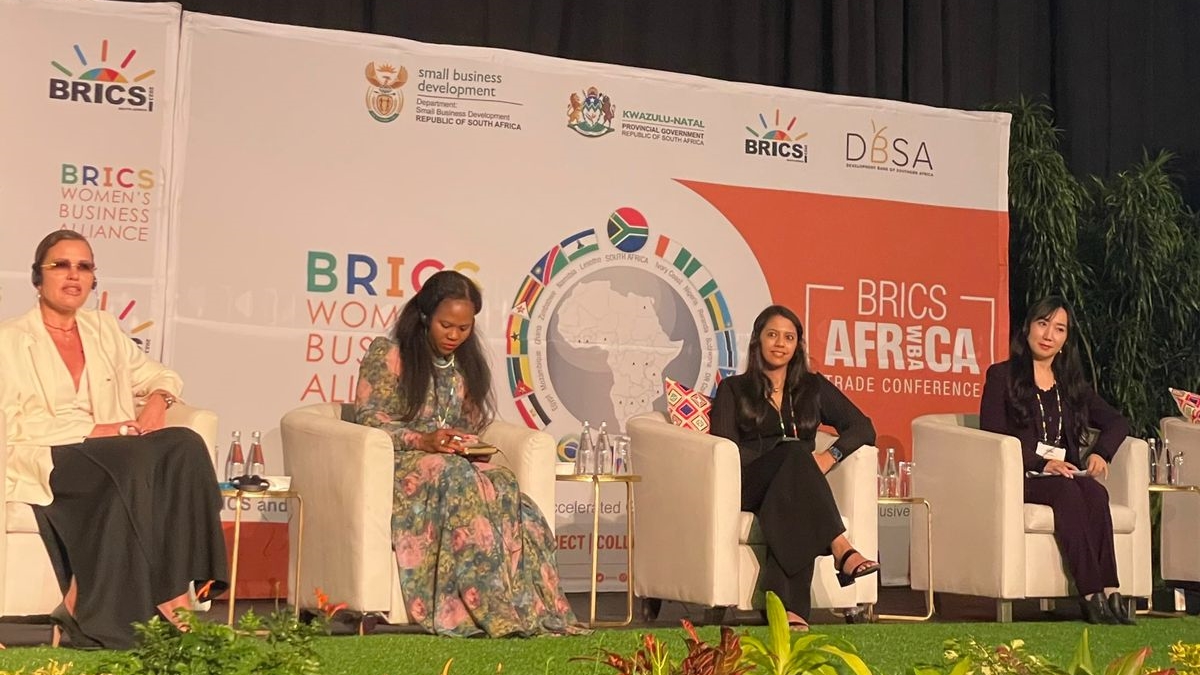- By JE News Desk
- Thu, 24 Aug 2023 01:38 PM (IST)
- Source:JND
The BRICS Women Business Alliance (WBA) held a momentous session in Durban, titled 'Digital Transition for Gender Equity: Unveiling Opportunities and Overcoming Challenges'. This gathering united influential figures from BRICS nations to explore the profound impact of digital transformation in bridging gender gaps.
Moderated by Dr Thandeka Ellenson, the session provided a platform for insightful deliberations among panelists from each BRICS country. The panel included India's Dr Aarti Gupta, Kristina Romanovskaya from Russia, Ji Xiaochen from China and South Africa's Veronica Motloutsi.
At the core of the panel's discourse was the pivotal role of the digital transition in advancing gender parity, alongside the critical necessity to surmount attendant challenges. Kristina initiated the conversation by highlighting the imperative to digitize all facets of the economy.
Dr Gupta emphasised the undeniable sway of technology over modern enterprises. She stressed that almost 90 per cent of present-day businesses rely on technology in diverse manifestations, underscoring the indispensability of embracing digital metamorphosis. With technology like social media, e-commerce, and AI revolutionizing communication, trade, and operations, an imperative emerges for universal digital proficiency, with a particular focus on empowering women.
All panelists fervently championed the involvement of women in digital entrepreneurship. The potential of digital initiatives to propel women's integration into the global digital economy is colossal. Businesses led by women, frequently smaller in scale and centered around retail and the informal sector, can harness digital tools to operate remotely, expand their reach, and access untapped markets, consequently yielding substantial efficiency gains.
Dr Gupta highlighted the principal hurdles confronting women in the digital domain, encapsulated within the ABCDEF framework:
- Access to Devices
- Basic Digital Literacy
- Cultural Norms in Patriarchal Societies
- Disparity in Education
- Entrepreneurial Disparity
- Financial Inaccessibility
Shifting the focus to collective action by BRICS nations, all panelists identified shared obstacles including educational gaps, patriarchal norms, limited financial access, and information imbalances. Dr. Gupta proposed a comprehensive strategy:
- Provide women with access to mobile phones and internet-enabled devices.
- Develop inclusive curriculum focusing on digital education.
- Establish a framework for collecting and analyzing gender-disaggregated data.
- Encourage innovative solutions and funding for women's digital businesses.
In essence, the BRICS WBA's discourse on gender equity within the digital transition reverberated as a compelling call for action. It underscored the transformative potential of technology and stressed the vital role of collaboration in surmounting the obstacles that women confront in an era defined by digitalisation.

